Separatist sections lack any legitimacy in HK
Updated: 2015-03-03 07:35
(China Daily)
|
||||||||
|
Protesters wearing masks shout at mainland Chinese travellers (C) during a demonstration inside a shopping mall in Hong Kong February 15, 2015. Anti-mainland Chinese demonstrators on Sunday protested against parallel traders and confronted police, government radio reported. REUTERS/Tyrone Si |
Under the guise of "anti-parallel trading", protesters led by two "nativist" groups, Hong Kong Indigenous and Civic Passion, on Sunday laid siege to downtown Yuen Long, New Territories, storming shops and provoking violent scuffles with local residents and the police.
This was the third mob action in Hong Kong targeting mainland visitors and the retail outlets they patronize in a month. These moves, apparently designed to foster hatred between locals and mainland residents, appear to be part of a separatist agenda promoting the illusionary idea of "Hong Kong independence" in the city.
But like other such previous maneuvers, these attempts to promote a separatist agenda in the Hong Kong Special Administrative Region will be futile. There is no place in the SAR for separatism, or "nativism". It will only lead the city to a political and economic dead end.
It is widely accepted that since it was conceived more than 30 years ago, the "One Country, Two Systems" principle has never included any possibility of the notion of the SAR becoming an independent political entity.
Even by the wildest possible interpretations of the most liberal political scholar, a "high level of autonomy" doesn't legitimately contain any implication of such a political proposition.
A State Council white paper in June on the implementation of the "One Country, Two Systems" policy should have completely removed any ambiguity over the legal status of the SAR through its emphatic reaffirmation of the central government's comprehensive jurisdiction over Hong Kong.
Hong Kong's prosperity can be largely attributed to its role as a bridge between the nation and foreign countries. The city will risk losing this role and becoming marginalized if it is plagued by confrontational politics by radical sections.
Besides, separatism has no appeal in mainstream Hong Kong society. By virtue of the fact that the vast majority of Hong Kong residents are either mainland-born immigrants or second - or third-generation immigrants, they feel a strong emotional attachment to the motherland. After all, they share the same consanguinity, tradition, culture and history with their compatriots on the mainland.
- Legislative, advisory assemblies clean house
- Reserves expanded to protect panda's habitats
- Sport chiefs to press ahead with soccer reforms
- Visitors enjoy cherry blossom in a park in SW China's Yunnan
- Death toll rises to 9 in Shenzhen airport car accident
- Reporters receive accreditation for 'two sessions'

 Han-style Chinese beauties at Cambridge
Han-style Chinese beauties at Cambridge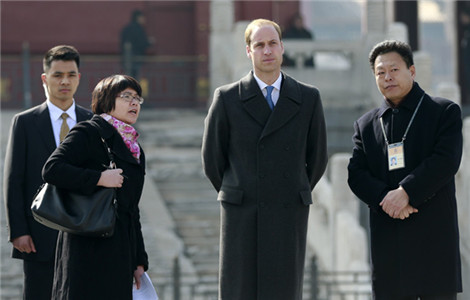
 Prince William visits Forbidden City
Prince William visits Forbidden City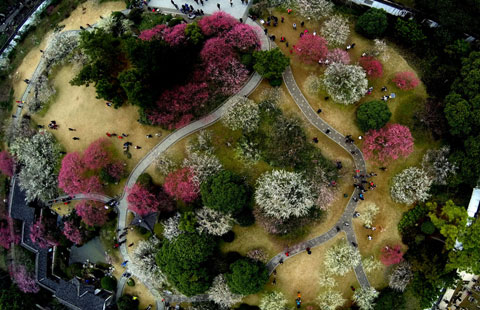
 Aerial views of plum blossoms as beautiful as oil paintings
Aerial views of plum blossoms as beautiful as oil paintings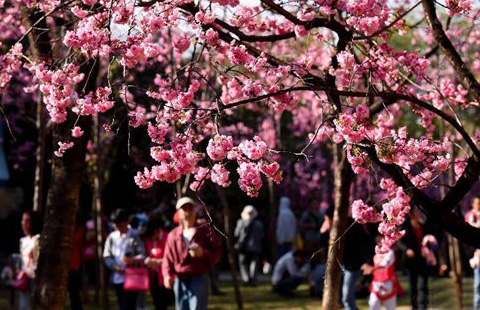
 Visitors enjoy cherry blossom in a park in SW China's Yunnan
Visitors enjoy cherry blossom in a park in SW China's Yunnan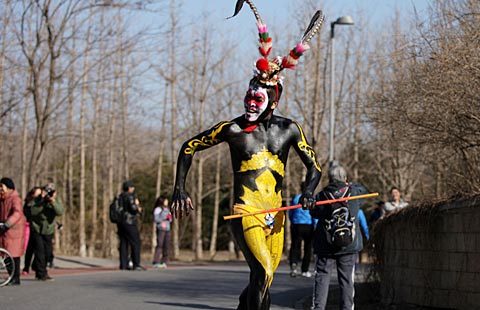
 Monkey king, angel and superwoman at Beijing's 'naked run' race
Monkey king, angel and superwoman at Beijing's 'naked run' race
 Red-crowned cranes in Yancheng
Red-crowned cranes in Yancheng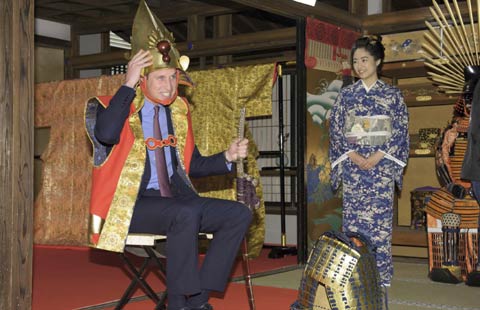
 Prince William evokes Diana memories on Japan tsunami trip
Prince William evokes Diana memories on Japan tsunami trip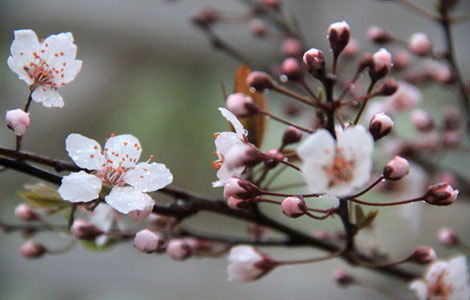
 Best times to view spring flowers in Beijing
Best times to view spring flowers in Beijing
Most Viewed
Editor's Picks

|

|

|

|

|

|
Today's Top News
US policy focused on Asia: official
China more proactive at UN
Cooperation potential called 'limitless'
Homeland Security funding drama darkens US fiscal outlook
17th Apple retail store in Chinese mainland opens in Shenyang
PBOC cuts rates to ease business financing
Former celebrity TV anchor on crusade against pollution
China ends UN council presidency
US Weekly

|

|







